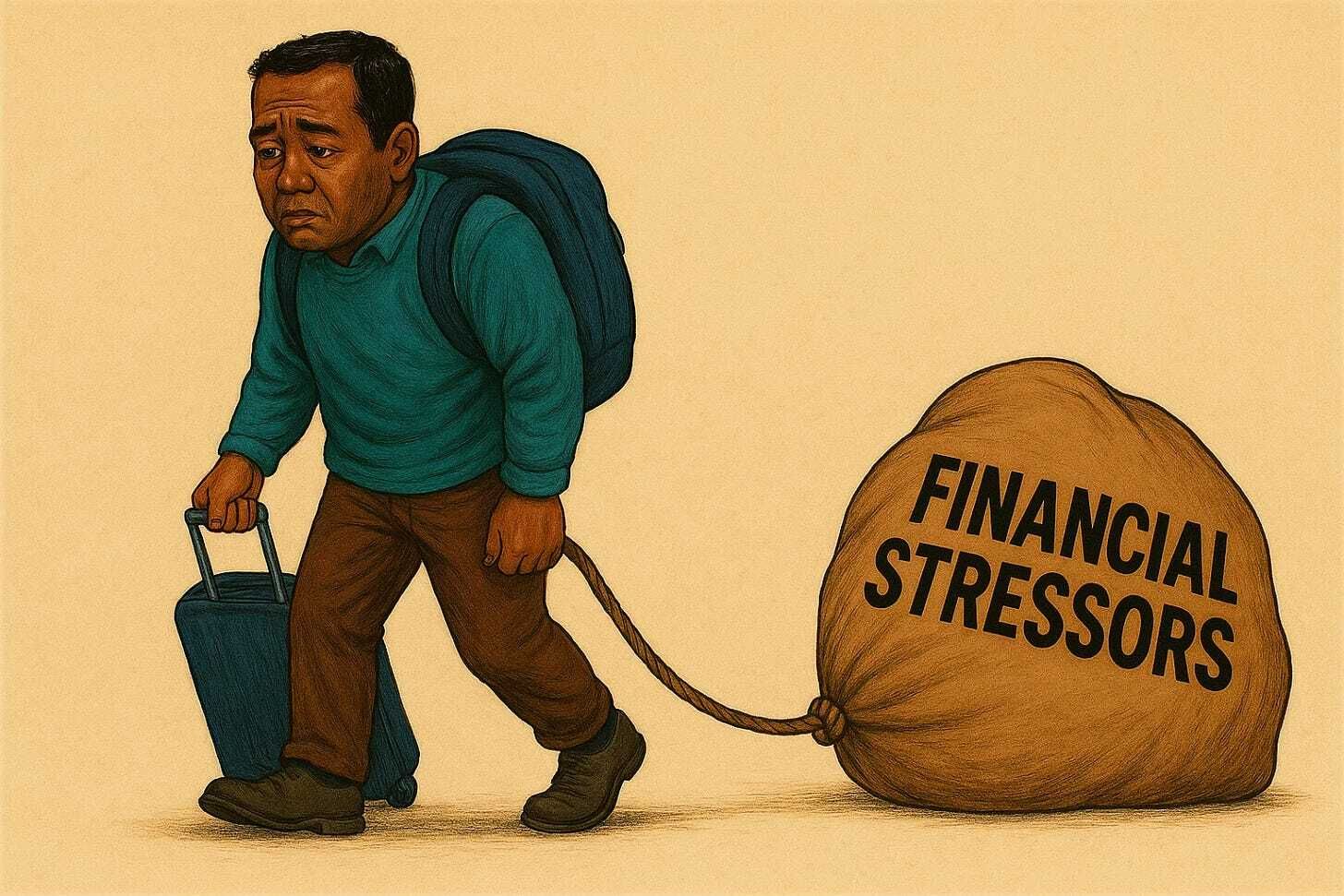Please forward this to ONE friend today and tell them to subscribe here.

When we moved to Canada three years ago, I had this bad habit almost any newcomer can relate to—I would convert every purchase I made to Naira. For context, the exchange rate then was ₦330 to C$1. Sometimes, when we went shopping, I would ask my wife, “Did we just spend ₦500,000 on groceries?”
Being a Johnny Just Come (JJC) can be hard. Aside from the mental gymnastics of currency conversion, here are five other financial stressors new immigrants like me face and some practical tips that helped me get by.
1. Job Hunting
The job market is a scary place for anyone these days, even more so for a newcomer. The good news is the market seems to be firming up. RBC Economics reports the unemployment rate edged down to 6.6%, from 6.7% in December and 6.9% in November.
However, your bills aren’t waiting around for the unemployment rate to drop to 2%. So, try the following job hunt tactics:
Networking: Attend job fairs, and industry events, and connect with professionals in your field on LinkedIn.
Upskilling: Take courses or certifications to enhance your skills and make yourself more competitive.
Volunteering: Gain Canadian work experience and build your network by volunteering in your field.
You can also check out this list of recruiting agencies by Canada Job Nexus.
2. Building Your Credit Score
Most new immigrants have zero credit history. I had to depend on family and friends to make my first few major purchases. For example, when it came time to buy a car, I didn't have the credit history to finance it. Luckily, my brother had a good credit history, so he stepped in and bought the car on my behalf. To get started with building a credit score:
Open a Canadian bank account and apply for a secured credit card.
Use your credit card for purchases and make sure to pay back on time to build credit.
Monitor your credit report and dispute any errors.
3. Renting a House
Finding affordable housing in Canada is like looking for a Danfo bus with A/C in Lagos. The rental market is a bit like the job market—low on housing inventory and high rents. It took us weeks to find a place. We'd schedule appointments, only to show up and find five other people viewing the same house. It was very competitive. Other times, we'd take too long to make an offer, and someone else would swoop in and take the house. The whole process was frustrating.
Here’s what helped us eventually get a place:
Research neighbourhoods and find affordable options.
Consider sharing an apartment or house with roommates if you are single.
Be prepared to act fast when you find a place you like – the rental market moves quickly!
If you’re a new immigrant and need to find a house in Calgary(rentals only for now), send me a DM on LinkedIn and I’ll connect you with a community that can help you (no strings attached).
4. Taxes and Benefits
Filing your tax in Canada is serious business. However, the tax system can be a challenge for most newcomers to understand on their own. Plus, the Canada Revenue Agency (CRA) doesn’t joke around if you owe them or ignore tax filing season.
Here are a couple of tips to make things easier for yourself. In no particular order:
Attend a tax clinic.
Register for a CRA account.
Research tax credits and benefits, such as the Canada Child Benefit or the GST/HST credit.
File your taxes online or hire a tax consultant to help you get your taxes filed.
5. Emergency Funding and Savings
Let's face it, saving money as an African immigrant can be tough. There's the infamous 'Black Tax' - aka supporting aging parents, siblings, kids, and even extended family members who view you as their primary source of income.
And then there's the pressure to keep up appearances. You know, proving to people back home that you've finally 'made it.' You can't be in "obodo oyinbo" and still be broke.
But here's the thing: breaking free from these financial obligations requires a solid plan. That solid plan starts with putting together an emergency fund in place. Here’s how I am building mine:
Start small: Set aside a fixed amount every month, even if it's just $100.
Automate your savings: Set up automatic transfers from your checking account to your savings account.
Avoid dipping into your savings: Avoid using your emergency fund for non-essential expenses.
If you’re new and would like to understand how to settle down fast financially, leave your details HERE and someone will get in touch with you.

